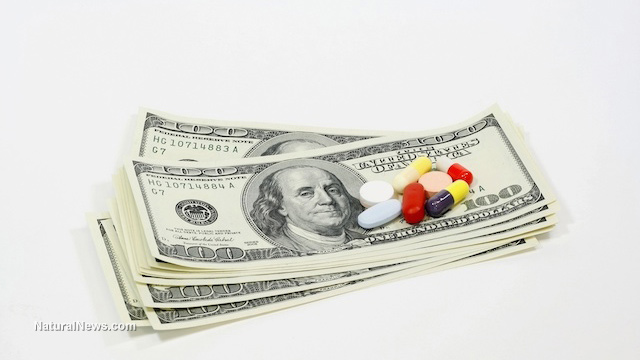Special to WorldTribune.com
In a March 19 speech in Manchester, New Hampshire, President Trump reiterated his call to “get tough” on drug dealers: He is directing the Justice Department to impose the death penalty on the worst traffickers.
Trump vowed during his 2016 election campaign to craft policies to stem the opioid crisis gripping the nation. His $13 billion plan would fund advertising campaigns to raise awareness, as well as prevention and treatment programs; it also includes resources to develop non-addictive painkillers.
Trump’s attention to the topic is praiseworthy, but his call for the death penalty for the worst drug dealers bespeaks a fundamental ignorance of the very nature of drug trafficking. Those on the streets selling and buying drugs are not afraid of death: this is a death culture.
 Many peddlers are also addicts, and hence cannot stop engaging in the trade; they need the money to feed their own habit. Or, they are so desperate for cash from the start that they are willing to risk their lives in a violent business that usually ends in bloodshed and a casket. Such “tough” talk will have zero effect on the streets.
Many peddlers are also addicts, and hence cannot stop engaging in the trade; they need the money to feed their own habit. Or, they are so desperate for cash from the start that they are willing to risk their lives in a violent business that usually ends in bloodshed and a casket. Such “tough” talk will have zero effect on the streets.
The pushers are in a mad race, struggling to stay alive, one day at a time. The vast majority of addicts are too strung out to even know when there is a change in policy, much less care. Do you think they are watching the news? The death penalty, were it imposed, might even come as a relief to some.
Those peddling and taking drugs are mostly desperate. This is unlike dealing with any other type of crime that begins with a rational, self-serving calculus. These are irrational creatures whose souls are in the grips of a death spiral. In many cases, their days are numbered, anyways. Don’t worry Trump: often, drug dealers kill one another, saving us all a great deal of time and money. The problem is, like cockroaches, they breed faster than they are eliminated.
Being a drug trafficker is by its very nature a death sentence. Consider for example one of the most notorious drug traffickers of all time, Columbian drug lord Pablo Escobar.
Columbian National Police killed him in 1993 as he attempted to escape their raid. By the end, he was so exhausted by the culture of death he presided over, he in effect allowed himself to be found and killed: He used a radiotelephone — one he knew was traceable — to make a call. He was only 44-years old.
Would the fear of an American death penalty (even if he were ever extradited) have prevented him from smuggling tons of cocaine per day into the U.S.? Escobar was after all, only feeding the demand on the streets.
And what of his most notorious distributor? Griselda Blanco, the so-called “Cocaine Godmother,” grew to be twisted and ruthless, engaging in crime as child on the streets of Medellin, Columbia. Driven by insatiable greed, she amassed a fortune and killed more than 200 people.
Even a prison sentence in an American jail did not deter her from the trade: she continued her business behind bars. She was ultimately assassinated in a drive-by shooting in 2012, dying at age 69. She became an addict and even grieved the death of three sons — all killed in drug-related violence — while helping Escobar smuggle tons of drugs into Miami, New York and Southern California.
Both Escobar and Blanco eventually got a death sentence. And it was expedited far more efficiently than by a federal judicial process in America. Yet, we still have a problem with an out-of-control drug culture.
Granted, the current drug crisis is fueled by a desire for heroin and its derivatives rather than cocaine. But the parallels are the same.
The opioid epidemic has to be drained at the source: it’s the demand, stupid. Ultimately, the only way to win the war on drugs is to dry up the pool of buyers. As long as the demand exists, the peddlers will arise and multiply, regardless of any law enforcement policies or activities. Ask the New York prosecutors and jail guards: their facilities are streaming with convicts. Still, the trade continues.
To get to the root of why so many Americans want opioids, we have to ask very difficult questions: Why are so many among us tempted to engage in this slow-motion suicide? Why is the death culture more alluring than that of life?
Grace Vuoto is the Communications Director of the Boston Broadside and a WorldTribune columnist.

